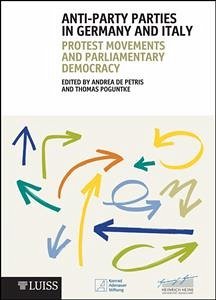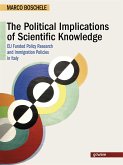Populist, extremist or anti-system parties are not new in the European political scene. At various times in contemporary history, Europe has experienced the rise and development of political movements that have made extremism the particular characteristic of both their political message and their modus operandi. A rather unusual phenomenon is instead related to the so-called “anti-party parties”, which have become more prominent in several European countries in recent years. This book focuses on two such extremely diverse examples as the Italian and the German case, presenting studies of the anti-party parties in the two systems produced by an experienced group of legal and political science scholars. This approach pursues two goals: on the one hand, to explain the characters, as well as to highlight similarities and differences, of the examples of anti-party parties existing in Italy and Germany, in order to enhance our understanding of this political phenomenon; on the other hand, to explore whether this study can provide useful elements in order to determine whether the “anti-party party”is a model on its own rather than an operative method that all political movements, extremist or mainstream, might adopt at some point in the near future – especially if it should happen to appear successful at the polls. Should the second hypothesis be confirmed, we could be dealing with a widespread “anti-party” state-of-mind very soon. In any case, it seems that the time to start adequate investigation of this phenomenon has finally come.
Bitte wählen Sie Ihr Anliegen aus.
Rechnungen
Retourenschein anfordern
Bestellstatus
Storno









